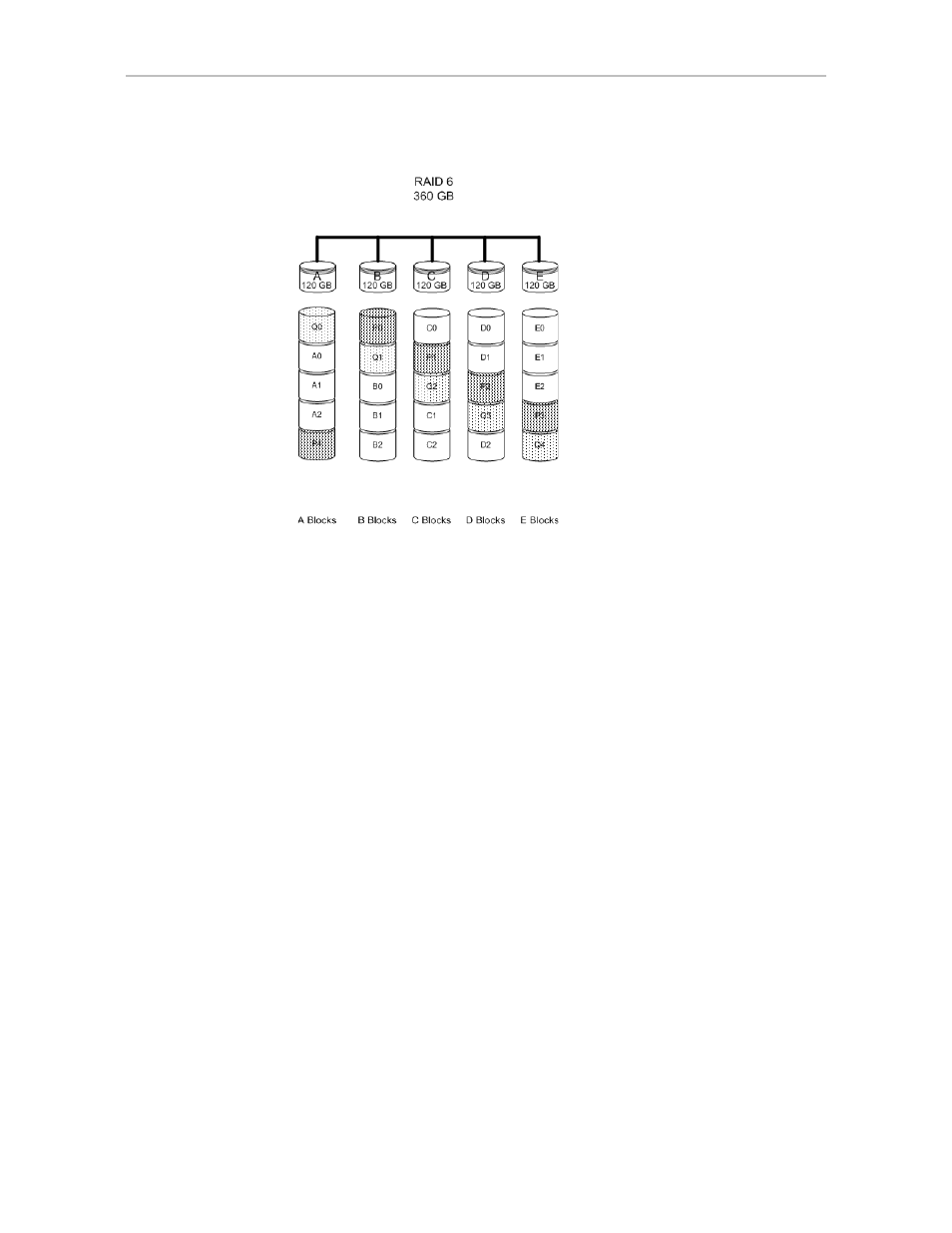Raid 10 – Avago Technologies 3ware SAS 9750-16i4e User Manual
Page 21

Understanding RAID Concepts and Levels
www.lsi.com/channel/products
9
Figure 5. RAID 6 Configuration Example
RAID 10
RAID 10 is a combination of striped and mirrored arrays for fault tolerance
and high performance.
When drives are configured as a striped mirrored array, the disks are
configured using both RAID 0 and RAID 1 techniques (see Figure 6). A
minimum of four drives are required to use this technique. The first two drives
are mirrored as a fault-tolerant array using RAID 1. The third and fourth
drives are mirrored as a second fault-tolerant array using RAID 1. The two
mirrored arrays are then grouped as a striped RAID 0 array using a two-tier
structure. Higher data transfer rates are achieved by leveraging TwinStor
technology and striping the arrays.
In addition, RAID 10 arrays offer a higher degree of fault tolerance than
RAID 1 and RAID 5 because the array can sustain multiple drive failures
without data loss. For example, in a 12-drive RAID 10 array, up to 6 drives
can fail (half of each mirrored pair) and the array continues to function. Note
that if both halves of a mirrored pair in the RAID 10 array fail, all of the data
is lost.
(600 GB - 240 GB for 2 parity drives)
- 3ware SAS 9750-24i4e 3ware SAS 9750-4i 3ware SAS 9750-4i4e 3ware SAS 9750-8e 3ware SAS 9750-8i 3ware 8006-2LP 3ware 8006-2LP (Channel) 3ware 9550SXU-4LP 3ware 9550SXU-4LP (Channel) 3ware 9550SXU-8LP 3ware 9550SXU-8LP (Channel) 3ware 9650SE-12ML 3ware 9650SE-12ML (Channel) 3ware 9650SE-16ML 3ware 9650SE-16ML (Channel) 3ware 9650SE-24M8 3ware 9650SE-24M8 (Channel) 3ware 9650SE-2LP 3ware 9650SE-2LP (Channel) 3ware 9650SE-4LPML 3ware 9650SE-4LPML (Channel) 3ware 9650SE-8LPML 3ware 9650SE-8LPML (Channel) 3ware 9690SA-4I 3ware 9690SA-4I (Channel) 3ware 9690SA-4I4E 3ware 9690SA-4I4E (Channel) 3ware 9690SA-8E 3ware 9690SA-8E (Channel) 3ware 9690SA-8I 3ware 9690SA-8I (Channel)
